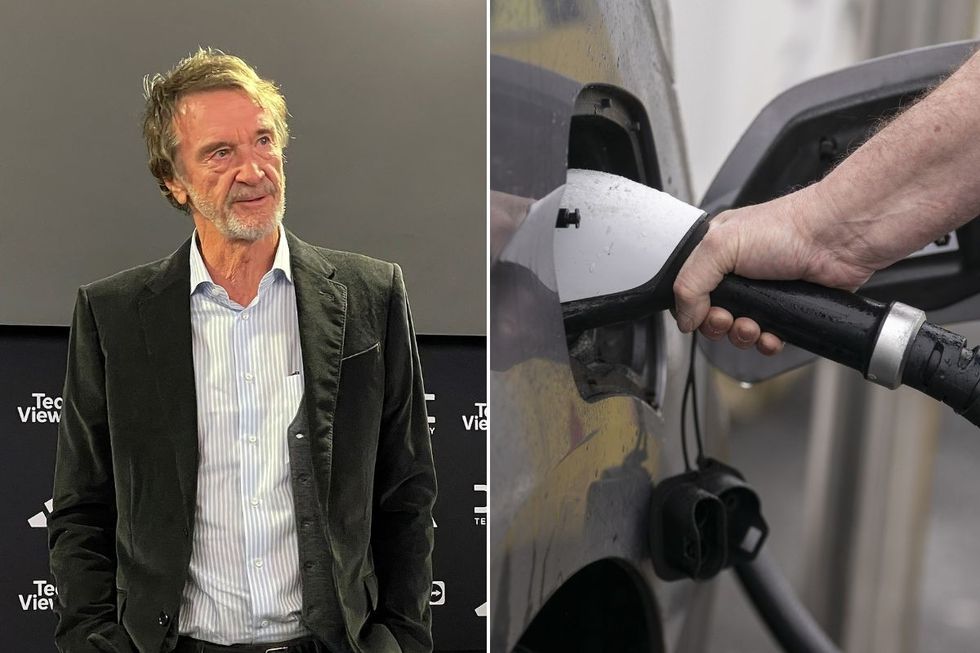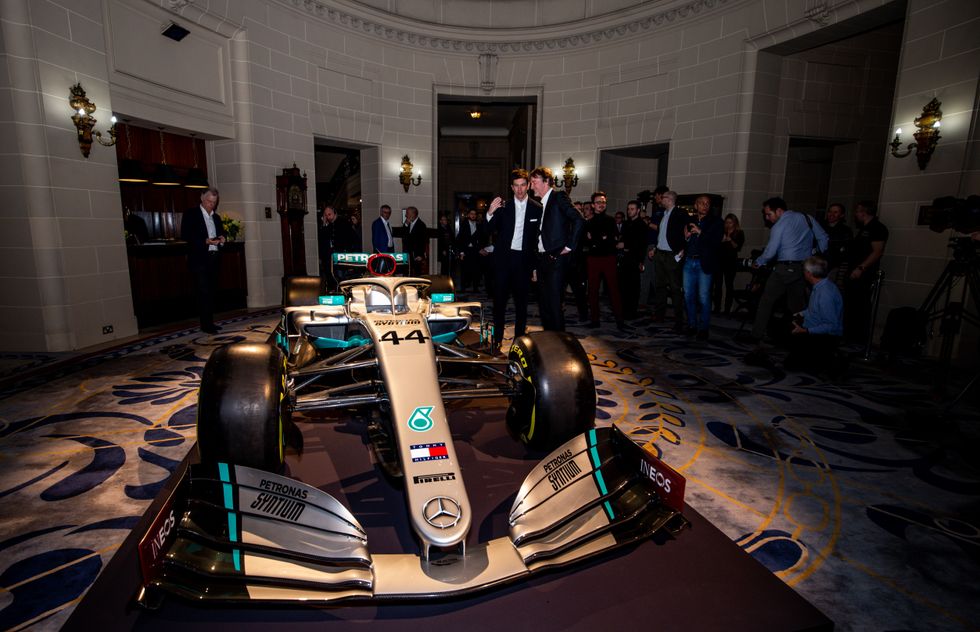Ratcliffe has suggested the use of petrol-powered range extenders for EVs
Don't Miss
Most Read
Trending on GB News
Sir Jim Ratcliffe has called on the Government to delay the 2035 petrol and diesel car ban, as he cites waning interest in electric vehicles.
The billionaire has launched an attack on the decision to ban the sale of new cars and vans with internal combustion engines from 2035.
The deadline was originally 2030, but Prime Minister Rishi Sunak announced a delay to give consumers more choice over how and when they switch.
Sunak praised the uptake of electric cars, with one new vehicle being registered every minute, but said drivers were still concerned about the public charging network and range anxiety.
Do you have a story you'd like to share? Get in touch by emailingmotoring@gbnews.uk

Sir Jim Ratcliffe has slammed the enforced switch to electric vehicles
PA
Ratcliffe is now demanding a relaxation of net zero environmental laws so low-emission petrol and diesel cars can be sold after the 2035 deadline.
He suggested that this could involve selling electric cars fitted with "petrol-powered range extenders" and plug-in hybrids, The Telegraph reported.
According to reports, Ineos Automotive, the billionaire's car brand, is planning to launch an electric car with a range extender.
Ratcliffe, who owns Manchester United Football Club, said range anxiety was a key factor for drivers being put off by electric vehicles and slowing sales.
He added: "Electric is fine and dandy for the short local journey, but should you decide to head off for the hills, forget it. And hence demand has dried up.
"There needs to be a transition period between fossil fuels and green fuels. The interim solution today which serves the need of the consumer is either the hybrid or electric vehicle with range extender.
"This is not the politician’s utopian world, but it serves the consumer well and maintains a very positive trajectory towards zero emissions during this transitional phase."
Other major players in the automotive industry have been vocal about the delay to the 2030 ban, with many major brands criticising the decision at the time of the announcement in September last year.
Many said it would have a negative impact on sales of electric vehicles, while others said it was necessary to allow for the upfront costs of vehicles to fall and continue the development of the electric car charging network.
Recently, the chief executive of Stellantis, one of the biggest automotive conglomerates in the world, said the Zero Emission Vehicle (ZEV) mandate had hindered development with brands forced to produce EVs even if there isn't strong demand.
The latest data from the Society for Motor Manufacturers and Traders (SMMT) found that 22,717 battery electric vehicles were sold in April, a 10.7 per cent increase compared to 2023.
While this is enough for 16.9 per cent of the total market share, it is still far behind the 55.8 per cent market share for petrol vehicles.
LATEST DEVELOPMENTS:

Jim Ratcliffe is planning for new projects with Ineos Automotive
PA
However, the used vehicle market has hit its five-year high, with zero emission car sales up 71 per cent to its largest-ever market share at 2.1 per cent.









